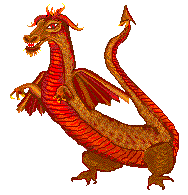|
| |
     
|
The Upcreek Post-Polio "First Do No Harm" page focuses on
drugs, treatments, activities, etc. that have been reported to have serious negative
effects on people diagnosed with PPS, and specifics of PPS that make it necessary to
modify "standard" treatments, such as pain relief or blood pressure medication
and anesthesia. It is intended as essential Education aimed at polio survivors, family and
medical professionals who care for them. . |
 
|
|

|
Be True
To Your PPS and Your Teeth Won't Be False To You: Preventing Complications in Polio
Survivors Undergoing Dental Procedures |
1996. Bruno, Richard L.,PhD. PPS
Monograph Series. Volume 6(1):1-8. Hackensack: Harvest Press. Unfortunately, only a
handful of specialists treat Post-Polio Sequelae (PPS) - the unexpected and often
disabling fatigue, muscle weakness, joint pain, cold intolerance, and swallowing, sleep
and breathing problems - occurring in America's 1.63 million polio survivors 40 years
after their acute polio. However, all medical professionals need to be familiar with the
neurological damage done by the original poliovirus infection that today causes
unnecessary discomfort, excessive physical pain and occasionally serious complications
with surgery. This is a brief overview to inform patients and professionals about the
cause and prevention of complications in polio survivors undergoing dental surgery. |
|
|
Do's and Don'ts |
*Starting Point.
"A Guide for Post-Polls: Do's and Don'ts General Therapies and Things to Avoid."
Article put together by the Easter Seal Society of
Washington. Keywords: Adaptation |
|
|
Preventing
Complications in Polio Survivors Undergoing Surgery |
1996. Bruno, Richard L. PhD. PPS
Monograph Series. Volume 6(2). Hackensack:Harvest Press. Unfortunately, only a handful
of specialists treat Post-Polio Sequelae (PPS) - the unexpected and often disabling
fatigue, muscle weakness, joint pain, cold intolerance, and swallowing, sleep and
breathing problems - occurring in America's 1.63 million polio survivors 40 years after
their acute polio. However, all medical professionals need to be familiar with the
neurological damage done by the original poliovirus infection that today causes
unnecessary discomfort, excessive physical pain and occasionally serious complications
after surgery. This is a brief overview to inform patients and professionals about the
cause and prevention of complications in polio survivors undergoing surgery.
Includes: POLIO
SURVIVORS' PRE-OP CHECKLIST |
|
|
Spinal Tap
for PPS? NO! |
1997/05. Walter, Tom. Over the
past couple of years some interesting and exciting discoveries have been made about the
polio virus that were unknown before. Researchers at the National Institutes of Health in
Bethesda, Maryland (USA) and at the Pasteur Institute in France have been able to identify
fragments of mutated polio virus RNA genetic material from the spinal fluid of people who
had "wild" polio (like most of us) and from the spinal fluid of those who had
the polio vaccines. |
|
|
What You
Should Know About Your Medications |
1996. Walker, J.M., Ph.D., PT, AM
Whelan, Phar. D. Medications (drugs), may be by prescription (Rx), or Over-The-Counter
(OTC). As a polio survivor you should become an informed user of drugs. (Also see WORD OF
MOUTH below for more information on medications and treatments that may cause problems) |
|
|
